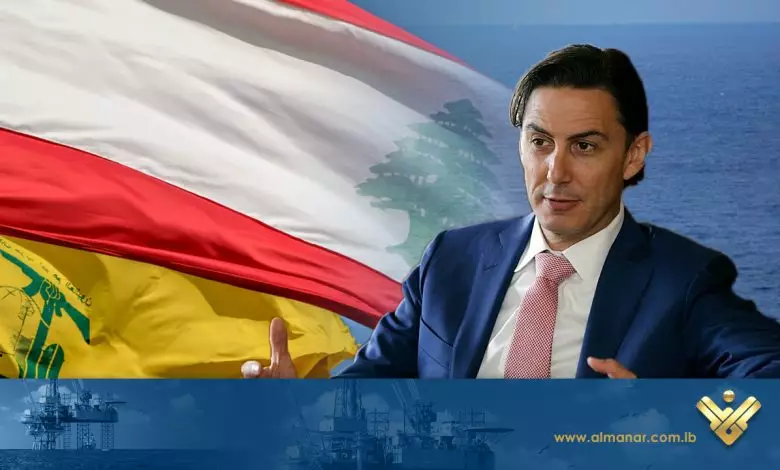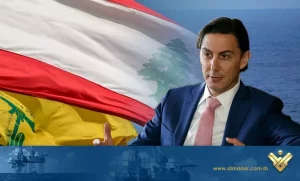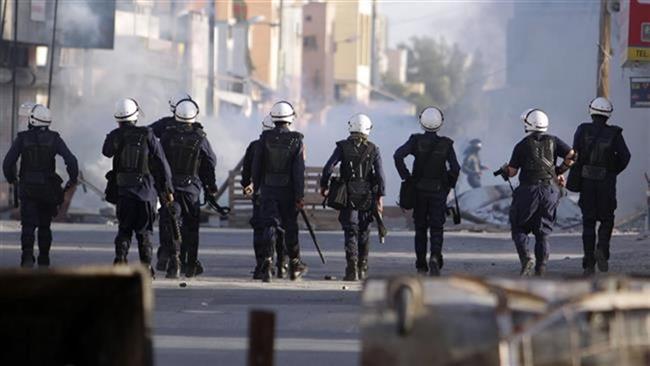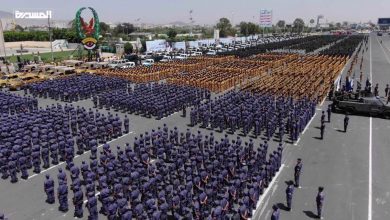Maritime Deal: How Hochstein’s ‘Nothing’ Turns into Lebanon’s Everything
In an interview with Al-Hurra in mid-June, US Energy Envoy Amos Hochstein hinted out that Lebanon has to “stop thinking” about being right regarding the indirect maritime border talks with the Zionist entity.

The US mediator called on both sides, Lebanon and ‘Israel’, to present “creative ideas” and approach the maritime dispute in a way that regards “getting more than I have” rather than “getting everything.”
In this context, the Israeli-born ‘mediator’ openly said that Lebanon has “nothing,” in a clear message to Lebanese negotiators to accept the US-Israeli provisions.
“I think the solution that will work is to stop thinking about do I have the most legal case… Do I want to be the most right? Because sometimes when you are right you have nothing to show for it,” Hochstein told Al-Hurra last June.
“The thinking instead should be as much energy should be placed in the thinking what is a creative idea that we can all compromise around that both sides all feel that I may not have gotten everything I want but I got a lot more than I have right now, which really in the case of Lebanon right now is nothing,” the UN envoy said with a contempt look.
Four months after Hochstein’s remarks, how things are going now? And how the “nothing” ended up according to Lebanon?
Lebanon’s Firm Stance
The “nothing” remarks came nearly ten days after the Israeli regime moved a production vessel, Greek firm Energean’s FPSO, to Karish field, with Zionist media reporting that gas extracting would take place in September.
Commenting on the arrival of the FPSO, Lebanese President Michel Aoun and caretaker Prime Minister Najib Mikati issued a joint statement on June 6, in which they warned that any exploration or drilling activity Israel might undertake in the disputed zones “constitutes a provocative and hostile act that threatens the international peace and security, and impedes the negotiations over the maritime border.”
Later on June 13, a day before Hochstein arrived in Lebanon and made the “nothing” remarks, President Aoun stressed that it is out of the question to waive Lebanon’s rights to invest its gas and oil wealth, affirming firm rejection to Israeli threats.
The Lebanese president then emphasized Lebanon’s sovereign rights to water and natural resources on June 14, as he handed over Lebanon’s response on the US proposal to Hochstein during his visit to Beirut.
In the same day, Speaker Nabih Berri met Hochstein and also affirmed Lebanon’s rights to invest in its oil wealth, noting that this right is unanimously agreed upon by all the Lebanese.
Moreover, the three senior presidents were on direct contact to follow up on the details of talks which took place later in August and September between Lebanese chief negotiator Elias Bou Saab and the US side. They spared no occasion to stress that Lebanon is keen to secure his rights in maritime wealth in a way that preserves stability.
Hezbollah Behind Lebanese State
Throughout months of indirect talks, Hezbollah has firmly stated it has nothing to do with the negotiations process, with Secretary General Sayyed Hasan Nasrallah reiterating that the Lebanese state is the only side that decides which maritime line will be agreed on and that Hezbollah wants to provide the Lebanese authorities with points of strength during the talks.
Though the Lebanese resistance movement affirmed it “stands behind the Lebanese State,” it was clear regarding defending what Lebanon considers its right.
On June 9, Sayyed Nasrallah stressed that Hezbollah is committed to defend Lebanon’s maritime wealth, warning that all options were on table.
On July 2, Hezbollah launched three drones towards Karish field, in a clear message Tel Aviv has received over the Lebanese resistance movement’s seriousness in dealing with the maritime issue.
On July 13, Sayyed Nasrallah warned the Israeli enemy it will be prevented from extracting gas and oil if Lebanon is not allowed to do so. In the same address, the resistance leader issued his well-known equation: “Karish and Beyond Karish”.
His eminence then delivered a speech on July 26, stating that no Israeli target is out of Hezbollah’s precision missiles reach.
On July 31, Hezbollah’s Military Media Department released video showing coordinates of the Israeli platforms operating in the Mediterranean. The video, dubbed “Within Our Reach”, warned the Zionist enemy that procrastination and playing for time during the negotiations are fruitless and that Hezbollah’s finger is on the trigger if the Israeli regime takes any action aimed at plundering Lebanon’s gas and oil fields.
Sayyed Nasrallah, later on August 19, said that Hochstein was wasting time, stressing that an escalation with the Israeli enemy is “inevitable if ‘Israel’ denies Lebanon’s maritime rights.”
Finalizing Maritime Deal
Lebanon and the Zionist entity were on September venues for accelerated diplomatic activity by Hochstein. US President Joe Biden announced in mid-September that a maritime deal is important, warning on the other hand that not reaching a deal has harmful repercussions on the region.
Israeli media also reported at the time that gas extraction started at Karish field. Israeli Ministry of Energy on September 17 clarified, at the request of the occupation military, that the activity in Karish was just for experimental purposes.
Things turned on October to be more optimistic but with caution. On October 1, Hochstein handed over his final proposal on the impending maritime deal.

Later on October 4, Lebanon requested modifications on Hochstein’s proposal in a text presented by Bou Saab to the US Embassy in Beirut.
Hochstein then handed over, on October 10, an updated version of his proposal. Media outlets announced a day later that Lebanon and the Zionist entity reached a US-brokered deal on the demarcation of the maritime borders.
Israeli Prime Minister Yair Lapid described the deal as “historic”, while the Lebanese Presidency said that items of Hochstein’s proposal were satisfying for Lebanon.
Maritime Deal in Israeli Eyes
Shortly after it was announced that a deal was reached, Israeli opposition lambasted the government of Yair Lapid, with former PM Benjamin Netanyahu considering the settlement a “historic surrender to Hezbollah”.
Lapid and Defense Minister Benny Gantz “gave Hezbollah our territorial waters, our sovereign territory, our gas, and in the end, they succumbed to another Hezbollah demand to allow Iran to drill gas off the coast of Israel,” Netanyahu said, as quoted by Israeli media.

Lapid, on his part, defended the deal insisting that it was “a boon to Israel’s security and staves off war with Hezbollah.”
Away from the heated political debate between the government and the opposition in the Zionist entity, which many commentators and analysts eye as based on electoral considerations (Israeli parliamentary elections to be held next November), remarks made by Israeli military officials say it all.
Amos Yadlin, former head of Israeli military intelligence, said on October 2, that the “assumption which is closer to reality is that (Sayyed) Nasrallah had all what he wanted, and for that he feels good.”
For his part, retired Israeli general who served as a Brigade commander Amir Avivi slammed the deal, saying that Hezbollah subdued ‘Israel’ and forced it to kneel down.
‘Israel is witnessing a dangerous precedent as Hezbollah is threatening us, and we back off quickly,” Avivi told the Israeli Radio on October 11.
100% of Lebanon Demands Met
Going back to the US, whose energy envoy made the “nothing” remarks, some officials had something different to say regarding the maritime deal.
“100% to Lebanon and 0% to Israel”
David Friedman, the former American ambassador to the Zionist entity said that no one imagined 100% to Lebanon and 0% to ‘Israel’, in a tweet on October 3.
Moreover, Former US Assistant Secretary of State for Near Eastern Affairs David Schenker said that Hezbollah threats enabled Lebanon to obtain 100% of maritime requests.
In a Wall Street Journal (WSJ) article, entitled “Israel Falls for Lebanon’s Treaty Bait-and-Switch,” Schenker explained that the Lebanese negotiators won the day by employing a time-tested bait-and-switch tactic, adding that demanding line 29 to demarcate maritime border aims at sustaining the initial negotiating position at line 23.
“As per the new agreement, Lebanon will attain virtually 100% of its initial negotiating position,” Schenker wrote.
Four months were enough to shift the US rhetoric from the “nothing” to “100%-met demands” for Lebanon. This shift was by virtue of Lebanon’s firm stance on its rights, and the game changer here is: Hezbollah.





